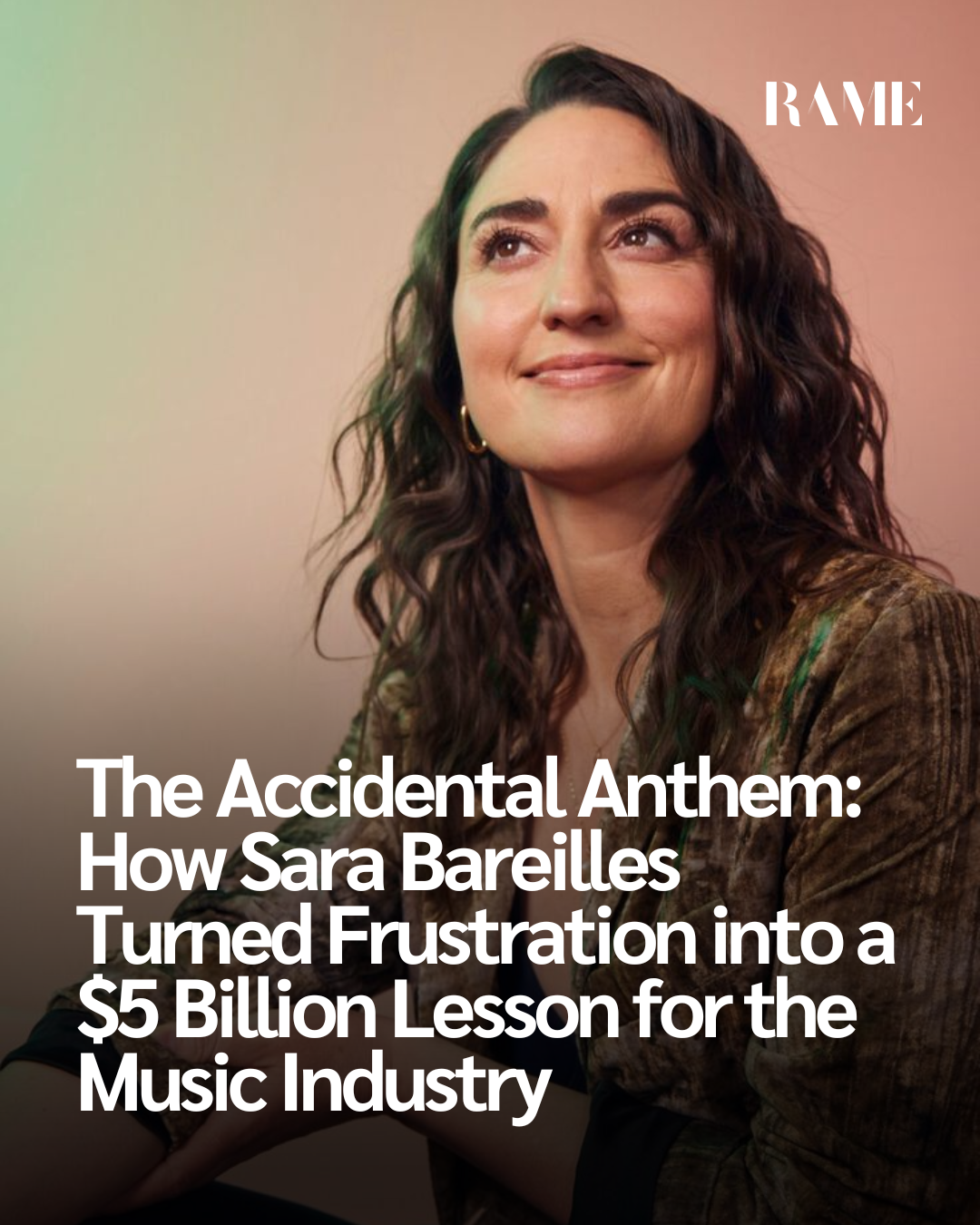In the business of hitmaking, very few stories feel as raw and unexpectedly empowering as the tale behind Sara Bareilles’ breakout single, Love Song. On the surface, it’s a catchy, piano-driven pop tune with universal appeal. But behind the upbeat melody lies a deeply personal and rebellious origin that reveals much about the tensions between artists and the commercial machine of the music industry.
This is not just a story about one woman’s rise to fame it’s a symbolic moment in music history that still resonates today, particularly as we witness the evolution of Australia’s booming $5 billion live music sector. As global trends continue to shape and reshape the music landscape, Bareilles’ journey stands out as a powerful reminder of how creativity, authenticity, and defiance against industry norms can ignite unexpected success.
A Voice Too Real for Labels
In 2005, Sara Bareilles signed with Epic Records, just a year out of college in Los Angeles. Like many emerging artists, she came equipped with raw talent, passion, and a self-produced debut album that had already shown promise. With a record deal in hand, she moved to New York, ready to refine her craft and begin her first major-label project, Little Voice.
However, the dream quickly met resistance. As per standard practice, Bareilles’ songs had to pass through label gatekeepers before they could be recorded. She brought forward six songs from her independent release, reworked them, and began composing new material to fill the rest of the album. But none of her new compositions seemed to satisfy the executives.
What they wanted, though not explicitly stated, was clear: a radio-friendly love song. Something safe, marketable, and emotionally palatable for the masses. But for Bareilles, this felt like a suffocating creative demand.
She wasn’t interested in serving clichés or forced emotion. Instead, she wrote a cheeky, thinly veiled protest in the form of a song the ironically titled Love Song.
Born from Rejection, Embraced by the World
In her 2011 interview with Voice of America, Bareilles said:
“It was actually written for my record label… I was getting the red light. I couldn’t go into the studio yet because they were waiting for something. But they wouldn’t say what they were waiting for. So I kept turning in new songs thinking like, ‘Is this what you want?’ It was always a big thumbs down. I ended up writing ‘Love Song’ out of frustration.”
The track was, essentially, a rebellion. With lyrics like, “I’m not gonna write you a love song ’cause you asked for it,” she called out the demands of her label while cleverly disguising it as the very thing they were asking for a love song.
Ironically, the executives loved it. The song they unknowingly inspired through rejection was now the one they were championing as the album’s lead single. Love Song would go on to become one of the most iconic tracks of the early 2000s.
Chart-Topping Success and Career Longevity
Love Song not only resonated with the public it exploded. The track topped charts, earned a Grammy nomination for Song of the Year, and helped propel Little Voice to double platinum status.
The unexpected success of a song written out of spite and artistic rebellion launched Sara Bareilles into the spotlight, but she didn’t stop there. Instead of becoming a one-hit wonder, she evolved. Bareilles would go on to release multiple successful albums and expand her creative scope into Broadway with Waitress, earning Tony nominations and critical acclaim.
Other hits like Brave further cemented her voice both musically and socially. Though Brave gained extra attention after comparisons with Katy Perry’s Roar, Bareilles took the high road. She has continued to champion causes close to her heart, becoming a respected feminist voice and LGBTQ+ ally in the industry.
Lessons for the Industry: Creativity vs. Commerce
The story behind Love Song is more than a quirky anecdote it serves as a microcosm of broader industry tensions that still exist today, especially as music economies evolve worldwide.
In Australia, the music industry is currently riding a historic wave, driven largely by the live sector which has grown into a $5 billion force. It’s a reminder that music, at its core, remains a people-powered experience. While record labels may still attempt to predict hits through data, algorithms, and commercial formulas, the true magic often comes from artists who follow their instincts—even in defiance of industry logic.
Sara Bareilles didn’t want to write what she was told to. And in doing so, she wrote exactly what the world wanted to hear. That paradox should serve as a cautionary tale and inspiration for A&R executives, producers, and artists alike.
Why It Still Matters Today
What’s so enduring about Love Song is not just the music but the moment it represents. It’s about an artist who pushed back against pressure, trusted her voice, and created something iconic not by conforming but by confronting.
In today’s era of streaming, TikTok virality, AI-assisted songwriting, and global genre-bending collaborations, it’s easy to forget the value of artistic friction. The kind that happens when the artist says no to the obvious route. Frustration, rejection, and resistance often become the hidden ingredients behind authenticity.
Bareilles’ journey shows that commercial success and creative integrity don’t have to be mutually exclusive. Sometimes, in fact, they feed off each other. And sometimes, a sarcastic “love song” can end up being the realest one on the radio.
The Australian Connection: A $5 Billion Stage
Australia’s music industry, now thriving like never before, can draw inspiration from stories like these. With live performances contributing more than ever to revenue and cultural capital, there’s immense opportunity to amplify voices that take the road less traveled. As the scene matures, it must not only support commercial giants but nurture and champion originality even when it doesn’t fit neatly into a playlist algorithm.
Live music is, after all, the most honest and unfiltered way of consuming art. And it’s often in the raw, emotional, unscripted moments like the one that birthed Love Song where audiences find the deepest connection.
Frustration Is Fuel
Whether you’re an artist in Melbourne, a label exec in Sydney, or a singer-songwriter fighting for your shot in LA let Sara Bareilles’ story be your gentle (or loud) reminder. Sometimes, the moment you feel most ignored or creatively trapped is the moment just before a breakthrough.
Bareilles didn’t just write a song. She lit a fire. And in doing so, she gave the world more than a hit she gave it a lesson: Never underestimate the power of saying no… especially when it’s wrapped in a song that says yes to yourself.



